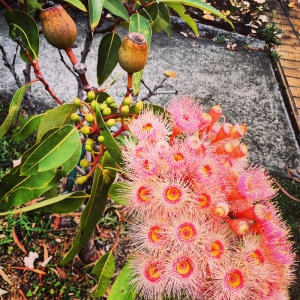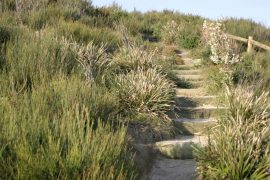 The Faculty of Arts and Social Sciences (FASS) recently held their assessment forum, an afternoon of presentations by teaching staff that gave insights into how they design assessment tasks and provide feedback to their students. It showcased ideas about ways of designing and presenting assessment to students. We also heard the student perspective about their experiences with assessments that worked well and those that didn’t, during their current studies at the University.
The Faculty of Arts and Social Sciences (FASS) recently held their assessment forum, an afternoon of presentations by teaching staff that gave insights into how they design assessment tasks and provide feedback to their students. It showcased ideas about ways of designing and presenting assessment to students. We also heard the student perspective about their experiences with assessments that worked well and those that didn’t, during their current studies at the University.
The presentations actively emphasised the need to have a two-way communication with students regarding assessment. For Dr Beth Yahp’s students, becoming writers and publishing fiction was a key motivation. She designed the assessments tasks for her post-graduate students doing ‘ENGL6987 Advanced Workshop: Novel’ so they experienced the qualities required to be professional writers. This goal was the starting point for designing the assessment tasks for the unit. The small size of the cohort doing ENGL6987 allowed Dr Yahp to provide individualised feedback at various stages of the semester. The feedback from class colleagues also played an important role in shaping the classroom workshops, in which students produced writing that was discussed and critiqued by colleagues in their groups each week. A task that is initially difficult to overcome for students when sharing writing that is likely to be of a personal nature; this process encouraged a professional and safe environment to discuss each others’ writing.
Assessment tasks are often seen as a hurdle for students because if they do not get them right, misread the criteria etc., it could mean the difference of ‘just’ a pass or a good pass e.g., a high distinction. The approach for another presenter, Ms Samantha Haley, was to include opportunities for the students to discuss and pose questions about the assessment and content in the unit structure. Ms Haley, who lectures undergraduate Japanese, uses a variety of communication tools in her Blackboard sites to give students feedback and provide a place for students to give each other support in numerous units in the Diploma of Languages. Here is a list of the tools Ms Haley uses but not all at once!
- Blogs for informal and public conversations among the cohort,
- Journals for personal reflective work and a two–way private communication with the lecturer,
- Discussion forums provide a space for specific questions and public conversation between the lecturers and students
- Video and audio feedback are used to provide individualised feedback and also to assess students. Language students have successfully used these modalities. Examples of tools used for video and audio feedback included Voiceboard, Kaltura and Turnitin.
The student representatives’ panel provided insights into how students interpret the variety of assessments across different disciplines. For the large part they were very positive about assessments that were scaffolded and provided clear marking criteria. Memorable dislikes included an assessment weighted at 50% that was the first assessment for a unit of study! Another student was challenged by a first assessment that was weighted at a lower percentage but was a task that she had no previous experience with: a ‘content analysis report’. This student decided to accept that she was not quite sure on how to write a content analysis report but undertook research and decided to be a bit more explorative in how she wrote the report.
A question from the floor on whether having exemplars as part of the assessment task helps, provoked a lively discussion. There was a 50-50 division on whether having an exemplar would help students to understand the task better, or hinder them from being original by encouraging them to just follow the same format.
Using the Learning Management System (Blackboard) was considered to be good, but one student suggested that for a first year undergraduate it was daunting to understand. The suggestion was made that first year students particularly would benefit from a quick guide and orientation to using Blackboard in each unit of study, perhaps at the first lecture of the semester.
Many thanks to FASS staff and Dr Rebecca Johinke for hosting and interesting and ideas inspiring event. I definitely understand with more depth the task at hand for engaging students and providing them with authentic experiences in preparedness for their future careers.





